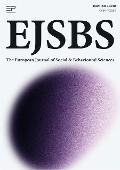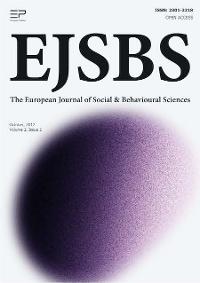Abstract
The present article describes a teacher training course promoted by the University of Genova among teachers from primary and middle schools of Genova (Italy) to empower their skills of school self-evaluation. That course focused on empowering teachers’ skills and abilities to realize tests to measure student learning in a standardized way, with the aim to compare students’ performances by using objective criteria. An action-research was developed among 74 teachers from two local networks of schools. The experimental activities of testing involved 708 students at different grades of school system (kindergarten, primary and middle schools). The main results are the positive feedbacks from teachers in front of the usefulness of testing to evaluate student achievement, the increase of teachers’ sensitivity towards the culture of school self-evaluation and teachers’ awareness towards results from international and national surveys based on testing students’ performances.
Keywords: Testing, teacher training, school self-evaluation, student achievement
Introduction
In the framework of school autonomy, schools invest time and efforts to develop activities of self-evaluation, capable to explain points of strengths weaknesses, such as testing student achievement.
The present article describes a teacher training course promoted by the University of Genova among teachers from primary and middle schools of Genova (Italy) to empower their skills of school self-evaluation.
An action-research was developed among 74 teachers from two local networks of schools, to empower their skills to measure student learning by using objective criteria.
The main results are positive feedbacks, more sensitivity and awareness among teachers towards the culture of testing students’ performances to well evaluate student achievement and select action to improve school.
Problem Statement
At national and international levels testing is a standardized way to evaluate how well schools works and its results have become relevant for their suggestions to improve educational policies. It is an accountability system of evaluation that suggests school systems how well they work and influence the decisions into nationally educational policies. At the same time schools are became more sensitive towards the culture of evaluation so that there are many examples of school self-evaluation. School self-evaluation is complementary to evaluations at macro level, such as the systematic national and international survey in education. There are practices of school self-evaluation focused on testing students’ achievement by using standardized criteria, able to explain objectives judgments. On the other hand it’s necessary having the right skill to realize tests, to administer them to students, to analyze them and to interpret and shared results among school’s stakeholders such as teachers, school principal, parents, students and so on.
Research Questions
The main question that aimed the action-research was how a teacher training course on realizing evaluative tools to test student achievement can improve the culture of evaluation, in particular of testing, and what are its effects among teachers.
Purpose of the Study
The purpose of the study is to show the main aspects of that teacher training course and its results in term of outcomes, teachers’ skills and involved students, and outputs, the realized evaluative tools, in particular the tests.
Research Methods
The teacher training course was required by the school managers of five schools of Genova and it was financed in part by them and in part by the School Board of the Liguria Region.
The action-research involved 74 teachers from one kindergarten, four primary schools and one middle school. Two networks of schools were realized to develop the training course. The aim of the first network was to work vertically (from the kindergarten to the middle level) on the effectiveness of student portfolio; the aim of the second network was to work transversally to test classrooms at the same level.
The action-research can be subdivided in three parts:
1) doing general meetings and workshops to provide the theoretical common bases and language to realize self-evaluation by using testing;
2) conducing the analysis of needs among teachers to fit the action-research and to organize the experimental school activities starting from the past experience in term of testing;
3) doing experimental activities to put into practice the knowledge and skills about testing.
The course was developed in two school years (2009/2010 and 2010/2011): during the first year teachers shared aims and realize the standardized tests focusing on the evaluation of students’ performances in reading literacy. The complexity of the tests varied according to the different grade of students. Totally 708 students were tested on May 2010. The second year one network of schools decided to realize tests on mathematics; while the other one deepen the aspect of analyzing and interpreting data and of sharing results among stakeholders.
Findings
Teachers, organized in work-groups, realized and administered standardized tests focused on testing the comprehensive processes to 19 students from kindergarten and focused on reading literacy to 90 students from the second ISCED level by using narrative text; 92 students from the third ISCED level, 88 students from the fourth ISCED level, 258 students from the fifth ISCED level and 161 students from the seventh ISCED level by using narrative and informative texts and grammar items. During this step the main aspect to be learned by teachers was the assumption of a theoretical framework to realize tests mixing simple and difficult items together to effectively measure the variance in term of ability among students.
Teachers participated to the elaboration and analysis of data and to the interpretation of results. In that part of the training course the difficulty to analyze and interpret data emerged among teachers and was linked to the similar difficulty to translate results from international and national surveys into useful information to improve school at micro level. For that reason, teachers perceived useful learning how to test students to evaluate their achievement, increasing their sensitivity towards the culture of school self-evaluation and awareness towards results from international and national surveys based on testing students’ performances.
Moreover, evaluation groups into schools were established, with the tasks to systematically promote actions of self-evaluation based on testing students’ achievement at different grades of school system.
Conclusions
Testing is a way to evaluate students’ achievement not so far from the common use of teachers’ evaluation. The formative experience from Genova shows the added value to combine the evaluation theory and practices in terms of developing the culture of evaluation among schools and in particular to improve more sensitivity and awareness about testing, doing experience in the fieldwork of its strengths and weaknesses.
The formative experience among teachers allows them to empower transversal skills such as identifying objective criteria, realizing equilibrated tests to measure students’ performances and being able to understand data and to share results. Moreover, giving teachers tools to realize objective activities of self-assessment was useful to avoid evaluation from the impartiality that is typical of self-evaluation.
Finally external evaluation initially perceived such as top down process, was understood for its value to improve school systems and for it potentiality to give to schools useful information.
Acknowledgements
The authors declare that there is no conflict of interest.
References
Berger, E., Bottani, N., & Ostinelli, G. (2003). Modelli teorici per l’efficacia e il miglioramento della scuola [Theoretical models for the effectiveness and improvement of the school]. In N. Bottani, & A. Cenerini (Ed.), Una pagella per la scuola. La valutazione tra autonomia e equità [A school report card. The evaluation between autonomy and equity] (pp. 133-153). Trento: Erikson.
Bezzi, C. (2009). Glossario della ricerca valutativa. Retrived on November 13, 2012 from http://www.valutazione.it/PDF/Glossario.pdf
Bottani, N. (2002). Insegnanti al timone? Fatti e parole dell’autonomia scolastica [Teachers at the helm? Facts and words of school autonomy]. Bologna: Il Mulino.
Chein, I., Cooks, W., & Harding, G. (1944). The field of action research, American Psychologist, 2.
Corey, S. M. (1953). Action research to improve school practice. New York: Columbia University, Teachers College.
Fischer, L. (2002). Gli insegnanti: ruolo e formazione [Teachers: role and training]. In L. Ribolzi (Ed.), Formare gli insegnanti (pp. 149-174). Bologna: Il Mulino.
Ghiaroni, R. (2009). Valutare cosa. Storie di Malavalutazione [Evaluate what. Stories of Malavaluation]. In ANP. Autonomia e dirigenza (pp. 45-50). Roma: Spaggiari.
MacBeath, J. (1999). School must speak for themselves: The case for school self-evaluation. London: Routledge.
Scheerens, J. (1994). Il sistema degli indicatori del funzionamento della scuola [The system of indicators of the functioning of the school]. In OCSE-CERI. Gli indicatori internazionali dell'istruzione (pp. 61-90). Roma: Armando.
Siri, A., & Freddano, M. (2011). The Use of Item Analysis for the Improvement of Objective Examinations. Procedia - Social and Behavioral Sciences, 29, 188-197. DOI:
Spinelli, M. (2009). Valutare gli alunni [Evaluate the pupils]. In ANP. Autonomia e dirigenza. Luglio-Agosto- Settembre 2009, 4-10.
Van Velzen, M. M., Ekholm, M., Hameyer, U., Robin, D. (1985). Making School Improvement Work: a Conceptual Guide to Practice, Leuven (Belgio): ACCO.
Vertecchi, B. (1999). Archivio docimologico per l’autovalutazione delle scuole [Docimological archive for the self-assessment of schools]. Frascati: CEDE.
Copyright information

This work is licensed under a Creative Commons Attribution-NonCommercial-NoDerivatives 4.0 International License.


